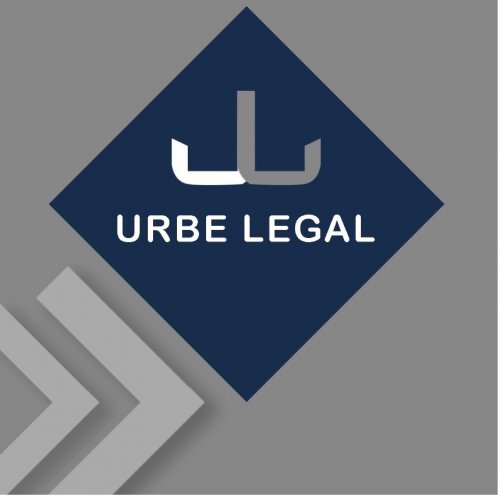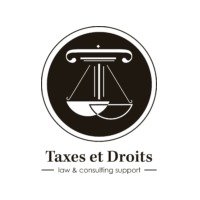Best Corporate Governance Lawyers in Guatemala City
Share your needs with us, get contacted by law firms.
Free. Takes 2 min.
List of the best lawyers in Guatemala City, Guatemala
About Corporate Governance Law in Guatemala City, Guatemala
Corporate governance in Guatemala City refers to the system of practices, rules, and processes by which companies are directed and controlled. In this context, it focuses on balancing the interests of a company's stakeholders, such as shareholders, management, customers, suppliers, financiers, government, and the community. Guatemalan corporate governance is primarily influenced by national legislation including the Commercial Code and other regulatory guidelines that ensure companies operate transparently, responsibly, and ethically.
Why You May Need a Lawyer
There are several scenarios in which seeking legal guidance regarding corporate governance is essential. Common situations include setting up a new company and establishing appropriate corporate structures, drafting articles of incorporation and by-laws, complying with local laws and corporate disclosures, managing shareholder agreements, resolving board or shareholder disputes, investigating alleged breaches of directors’ duties, handling regulatory investigations, or guiding transitions such as mergers or acquisitions. A lawyer can provide expert assistance with compliance, minimize legal risks, and ensure the proper functioning of your company according to Guatemalan laws.
Local Laws Overview
Corporate governance in Guatemala City is governed by several legal frameworks. The primary source is the Commercial Code (Código de Comercio), which outlines rules for company formation, board composition, shareholder rights, duties of directors, and company reporting requirements. Public companies are also subject to specific regulations by the Superintendency of Banks (Superintendencia de Bancos) and the Superintendency of Tax Administration (Superintendencia de Administración Tributaria). All companies must comply with anti-money laundering statutes, tax laws, employment laws, and, where applicable, guidelines on minority shareholder protections. Local regulations emphasize management accountability, transparent reporting, periodic board meetings, and proper recordkeeping.
Frequently Asked Questions
What types of companies are most common in Guatemala City for corporate governance?
The most common company types are the Sociedad Anónima (S.A. - similar to a corporation), and the Sociedad de Responsabilidad Limitada (S.R.L. - similar to a limited liability company). Both have distinct corporate governance structures.
What are the basic responsibilities of a company’s board of directors?
The board is responsible for overall management, policy decisions, ensuring lawful operations, protecting shareholder interests, and overseeing financial reporting and company strategy.
Are there requirements for holding regular shareholder meetings?
Yes, companies are generally required to hold at least one annual general meeting (AGM). Additionally, extraordinary meetings may be called as needed under the company’s by-laws or the Commercial Code.
Who enforces corporate governance laws in Guatemala City?
Primary enforcement is through the courts as well as regulatory agencies such as the Mercantile Registry, Superintendency of Banks, and the Superintendency of Tax Administration.
Is it mandatory to have independent directors on the board?
While not always mandatory for all companies, public companies and specific regulated industries may require independent directors as part of their corporate governance best practices.
How are conflicts of interest managed?
Guatemalan law requires directors and officers to disclose any conflicts of interest to the board and abstain from voting on related matters, with all such disclosures properly recorded in the meeting minutes.
What are the penalties for non-compliance with corporate governance regulations?
Penalties include fines, civil liability, reputational damage, and in some cases, criminal sanctions. Companies and their directors can face litigation or regulatory actions for breaches.
Do small and medium enterprises (SMEs) need to follow the same corporate governance rules?
All companies must comply with baseline legal requirements, but the complexity of governance structures may differ for SMEs compared to larger, public companies.
Can foreign nationals serve as directors or shareholders?
Yes, foreign nationals can generally be shareholders and directors in Guatemalan companies, but must comply with any necessary immigration and registration requirements.
How can disputes between shareholders be resolved?
Disputes are often resolved through arbitration clauses in the company’s statutes, board intervention, or, if necessary, through the local courts.
Additional Resources
Individuals seeking further guidance on corporate governance in Guatemala City may consult entities such as the Mercantile Registry (Registro Mercantil), the Superintendency of Banks (Superintendencia de Bancos), and the Guatemalan Chamber of Commerce (Cámara de Comercio de Guatemala). The Guatemalan Bar Association (Colegio de Abogados y Notarios de Guatemala) can also assist with finding specialized attorneys. Additionally, local accounting firms and law firms often publish helpful guidance on recent changes to corporate law and governance practices.
Next Steps
If you require legal assistance with corporate governance in Guatemala City, begin by identifying the specific issue you are facing and gathering all relevant company documents. Next, seek out a qualified lawyer with expertise in corporate law and local regulations. Consultations can help clarify your legal position and outline possible solutions. For formal representation or legal filings, ensure your lawyer is duly registered and experienced in the relevant practice area. Staying proactive and informed is key to maintaining compliance and protecting your business’s interests.
Lawzana helps you find the best lawyers and law firms in Guatemala City through a curated and pre-screened list of qualified legal professionals. Our platform offers rankings and detailed profiles of attorneys and law firms, allowing you to compare based on practice areas, including Corporate Governance, experience, and client feedback.
Each profile includes a description of the firm's areas of practice, client reviews, team members and partners, year of establishment, spoken languages, office locations, contact information, social media presence, and any published articles or resources. Most firms on our platform speak English and are experienced in both local and international legal matters.
Get a quote from top-rated law firms in Guatemala City, Guatemala — quickly, securely, and without unnecessary hassle.
Disclaimer:
The information provided on this page is for general informational purposes only and does not constitute legal advice. While we strive to ensure the accuracy and relevance of the content, legal information may change over time, and interpretations of the law can vary. You should always consult with a qualified legal professional for advice specific to your situation.
We disclaim all liability for actions taken or not taken based on the content of this page. If you believe any information is incorrect or outdated, please contact us, and we will review and update it where appropriate.

















